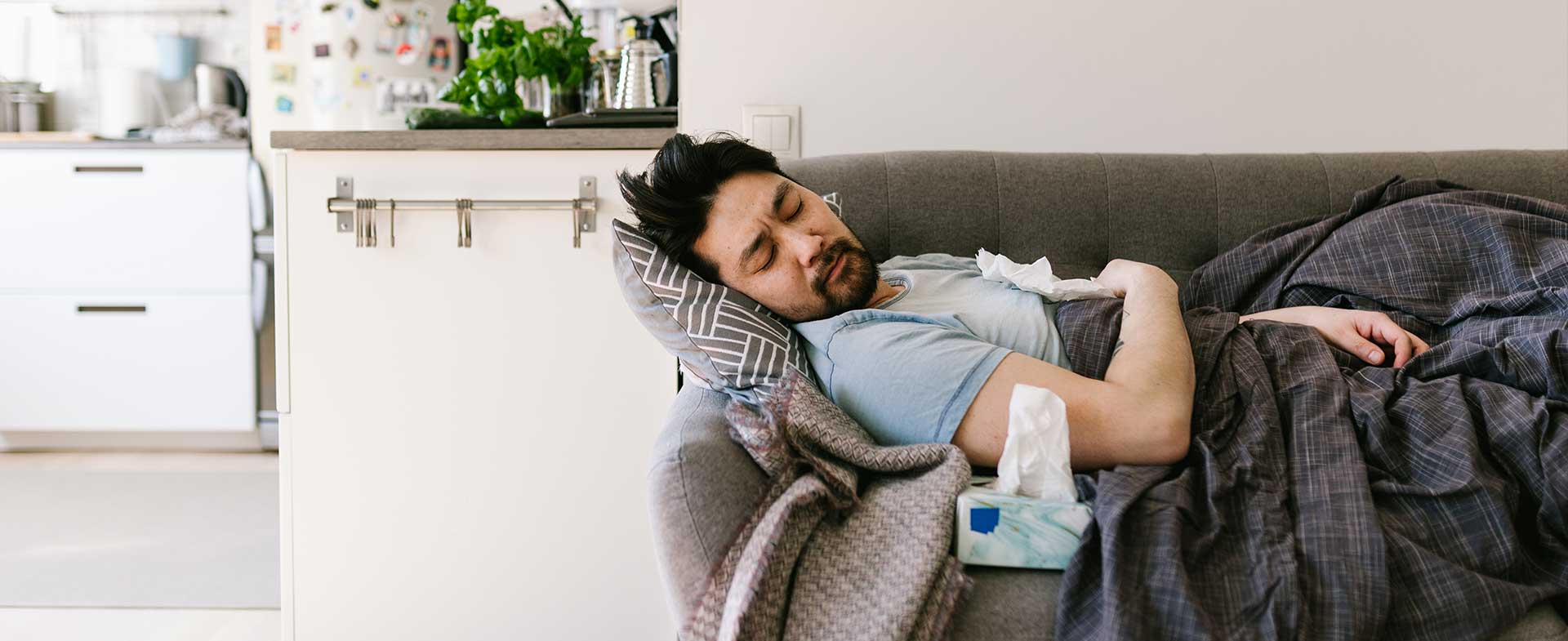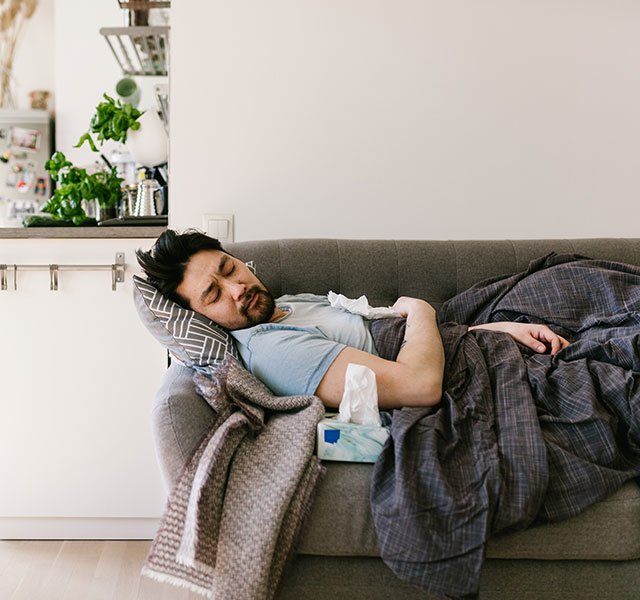Every day, new research is coming out about the novel coronavirus, or COVID-19. Guidelines and recommendations from the CDC and public health officials are changing as more studies reveal how the virus behaves. As of now, there are limited testing kits in the United States, so testing for COVID-19 is restricted to those who are incredibly sick and in the hospital, says Sean Drake, M.D., an internal medicine doctor with Henry Ford Health.
“As of today, there isn’t a sufficient amount of testing available, so we can’t test everyone who comes in with a sniffle,” he says. “There might come a time when testing is widely available, but right now we have a shortage, so the people who are being tested are those who are older, critically ill, or who have severe underlying health conditions.” (Underlying health conditions include lung conditions, asthma, heart problems and weakened immune systems, like those with organ transplants and cancer.) Tests also need to be reserved for healthcare workers — if they have it, they must be quarantined, and if they don’t, they’re needed to work.
If your symptoms include shortness of breath and an inability to breathe, head to the emergency room or call 911. Don’t show up unannounced, though — please call ahead so workers can be prepared to prevent the spread of the virus. If your symptoms are less severe or don't seem life-threatening (if you have a slight fever of 100 - 101 degrees Fahrenheit, a cough and aches, for instance), doctors recommend recovering at home instead of rushing to your doctor’s office or an urgent care. If you don’t have COVID-19, you could be infected by those who do and, if you do, you risk spreading the virus to others.
“In these cases, you can call or message your healthcare provider. We’re doing video and e-visits to decrease the chance of it spreading in waiting rooms,” says Dr. Drake.
Here’s how he recommends you care for yourself at home when potentially sick with COVID-19:
- Quarantine yourself for 15 days. That is the recommended amount of time to ensure you won’t be contagious. (And whether you’re healthy or unwell, social distancing is a must for everyone.)
- Take your temperature once or twice a day. “You can be asymptomatic for the first five to seven days and then experience increasing symptoms,” says Dr. Drake. Keep track of your temperature so you know if your fever is increasing or your symptoms are worsening.
- Rest. “I’ve heard that some people are exercising a lot, but this is not the time to be doing strenuous activities. If you’re sick, you need to let your body rest and recuperate,” says Dr. Drake.
- Drink fluids. As with the flu, drinking plenty fluids is recommended when you’re sick at home.
- Be wary of ibuprofen. There's been conflicting information on ibuprofen and COVID-19. “It’s not completely clear at the moment, but preliminary studies have suggested there may be an increased risk with ibuprofen,” says Dr. Drake. Out of caution, he recommends taking acetaminophen, like Tylenol, to relieve symptoms.
- Cough medicines are okay. Cough drops, cough syrups — things that help with nasal congestion — are fine to take to relieve symptoms.
- Eat a healthy diet, but know that vitamin C won’t cure you. “If I get COVID-19, I will be drinking orange juice, but it’s not a magic pill,” says Dr. Drake. Some people are relying on vitamin C-rich elderberry, but he says there is currently no evidence of it helping or hindering people with COVID-19.
- If you’re on an ace-inhibitor medication, switch to something else. “If you have COVID-19 and you’re on a class of blood pressure medications called ace inhibitors, there is early evidence suggesting they worsen the outcome of COVID-19,” says Dr. Drake. “There’s no need to switch blood pressure medication if you don’t have COVID-19, but if you do contract it, talk to your healthcare provider about taking a different type of blood pressure medication.”
For up-to-date information about Henry Ford Health’s response to the coronavirus, visit henryford.com/coronavirus.
Dr. Sean Drake is an internal medicine physician seeing patients at Henry Ford Medical Center in Sterling Heights.



